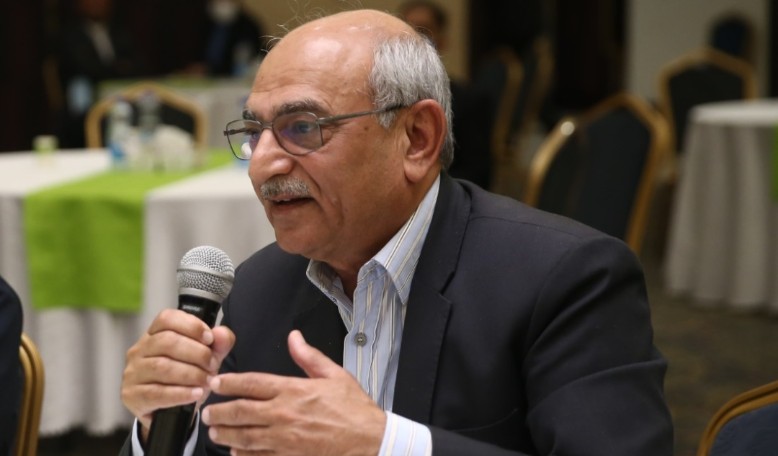Pakistani pharmacologist recommends following Avicenna’s principles in science
A participant of the 2021 Mustafa(Pbuh) Prize week in October, in an interview with the Mustafa(Pbuh) Science and Technology Foundation (MSTF) underscored using the approach of Avicenna in science in the present era.
MSTF Media reports:
Anwar-ul-Hassan Gilani, Vice Chancellor of the University of Haripur and full professor of Pharmacology, was a participant of the 2021 Mustafa
Prize week held in October. In an interview, he talked about the position of Muslims in science and his research area.
Asked about the proper approach for developing science and technology in Islamic countries, he emphasized the necessity of collaborative research and working together. Regarding this issue, he lauded MSTF’s “initiative in providing a platform which gathers scientists from all over the world.”
In this platform, “as Muslim ummah, we sit together, work together, and share ideas. I am very pleased to see it,” he added.
He pointed to “identifying young talents and training them for commercialization” as another approach for developing science and technology in Islamic countries, adding “This is the era of knowledge-based economy, so the countries that make progress in science, technology and innovation will flourish.”
“Unfortunately, as Muslims we are a bit behind in science and technology,” Gilani continued, emphasizing that “we should remember the Golden Age of Islam when we were pioneers in science. So we should work together to make progress in science and technology.”
Asked about the real-life application of his research, he said his research is related to the sphere of health, noting that one of the major issues in health is that “the current system of medicine and medication cannot be afforded by the majority of population.”
Pharmaceutical drugs are not only very expensive, but also have many side effects, he continued.
“I am trying to do research on the use of functional foods,” he said, pointing out that functional foods are “less expensive, relatively safe, and also certainly more accessible.”
According to Gilani, this research has a huge potential when it comes to health challenges such as non-communicable diseases (NCD) which need lifelong intake of pharmaceutical drugs that are very expensive and unsafe.
“Using natural products in their natural form is the solution, and this is what I am trying to emphasize,” he said, elaborating “Using these natural products, particularly functional foods, which have been tested and are accessible to the public, will help many health issues—in terms of both affordability and safety.”
Gilani said that his field of research is understudied in Islamic countries, adding “Currently, multinational interests seek to promote their own agenda, but our interest is to promote our indigenous systems of medicine. Hence, we should do research following the principles of Avicenna who was not only a hero in the past, but also a scientist whose findings and approach is now considered up-to-date even in the West.”
As Gilani put it, “Avicenna’s approach was treating body as a whole, not treating symptoms. Another thing that he said was that each individual is different.”
“So, many individuals suffering from the same disease cannot be treated by the same medication,” he added, concluding “following the principles of Avicenna in health is the answer.”
Asked about the efficiency of mobility programs, he replied: “As long as movement to the West is temporary, it is a good one. I’ve visited more than a hundred countries, but I have never tried to settle abroad, always committed to come back,” adding “movement within Islamic countries, such as postdoc and PhD exchange programs between different Muslim countries, is also very important in learning from each other.”
Anwar-ul Hassan Gilani obtained his PhD from the University of Sydney, Australia, in 1985. He joined the Aga Khan University in 1986 and became a full Professor in 1997. Currently, he is the Vice Chancellor of the University of Haripur, Pakistan. Some of his research interests include Ethnopharmacology, Public Health and Community Pharmacy, and Translational Studies (from Lab to patients) on dietary supplements for their efficacy in Cardiovascular and Metabolic disorders. He has won numerous academic awards and held many prestigious academic positions. Gilani has been an advisor to the WHO Geneva on Essential Medicine and International Foundation for Science. In 2020, his name appeared in the top one percent of the world scientists based on study conducted at Stanford University, USA.

